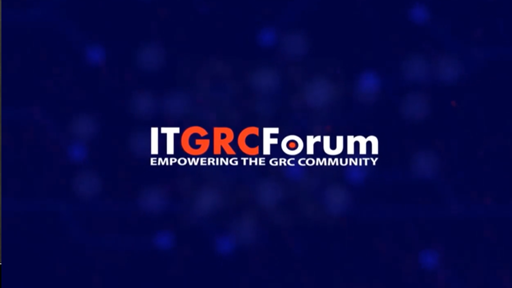Recorded: April 23 | 2014 Attend
Let's face it, there's unrelenting pressure on IT to enable competitive advantage through new technology and use of data assets‒-but the business is driving initiatives that can push sensitive production data into more and more exposed areas. The key question is 'How can you enable the business to be agile AND take a more proactive, programmatic approach to security at the same time?' With the advanced threats that are pervasive today, it's becoming increasingly dangerous for organizations to deploy new technologies and processes, and then reactively address the implications for data security in the ecosystem. You need a blueprint to reverse this trend in your organization.
In this webinar, William Stewart, Senior Vice President of Booz, Allen, Hamilton and Jeff Lunglhofer, Principal of Booz, Allen, Hamilton–a leading management technology and consulting firm driving strategic innovation for clients–will discuss the top trends in cyber threat mitigation, data privacy, data governance, and data security, with Mark Bower, VP Product Management and Solutions Architecture at Voltage Security.
Attend this webinar to learn more about how to:
- Increase responsiveness and security in your IT environment and architecture
- Fight pervasive threats from inside and outside attack with data-centric technologies
- Raise your organization's overall data privacy, compliance, and security profile
- Implement a new data de-identification framework across production, test & dev, and analytics use cases
- Proactively enable critical business initiatives
--Can't attend live? Register below to receive a link to the recorded webcast..
Speakers
 Mark Bower is the Vice President of Product Management & Solutions Architecture at Voltage Security. He is a noted expert in data protection solutions, and expertise spans electronic banking, payments processing, smartcard payment systems, Public Key Infrastructure (PKI) and identity management systems both for the commercial and government sectors. Mark is heavily involved in industry standards bodies including the PCI Security Standards Council SIG's covering Tokenization, Point to Point Encryption, EMV and e-commerce. He has authored several patents for e-commerce and security technology innovations in POS software management and remote control and data security based on his extensive experience in banking and payment solutions. Mark has worked on numerous security projects with Global 2000 firms in the UK, Asia, Australia, and North America including many of the Fortune 50 in the US. He holds a B. E. (Hons.) degree in Electrical Engineering from the University of Queensland, Australia and is based in California, USA.
Mark Bower is the Vice President of Product Management & Solutions Architecture at Voltage Security. He is a noted expert in data protection solutions, and expertise spans electronic banking, payments processing, smartcard payment systems, Public Key Infrastructure (PKI) and identity management systems both for the commercial and government sectors. Mark is heavily involved in industry standards bodies including the PCI Security Standards Council SIG's covering Tokenization, Point to Point Encryption, EMV and e-commerce. He has authored several patents for e-commerce and security technology innovations in POS software management and remote control and data security based on his extensive experience in banking and payment solutions. Mark has worked on numerous security projects with Global 2000 firms in the UK, Asia, Australia, and North America including many of the Fortune 50 in the US. He holds a B. E. (Hons.) degree in Electrical Engineering from the University of Queensland, Australia and is based in California, USA.
 William Stewart, is a Booz Allen Hamilton Senior Vice President. With more than 25 years of experience building consulting and systems integration businesses, Mr. Stewart leads the Commercial cyber business for Booz Allen Hamilton. He develops strategy, provides consulting and implements solutions for today's most complex cybersecurity problems. He has grown large consulting and systems integration businesses for both public and private sector clients, including the Department of Defense DoD, civil agencies, Intelligence Community (IC) and commercial financial services. He consults to senior government executives, as well as to CEOs, CTOs, CIOs, and CISOs. Mr. Stewart helps clients by strategically integrating technology, operations, culture, management, and policy change. Before joining Booz Allen, Mr. Stewart worked for a major electronics firm where he developed communications security and key management devices. He also served as a Signal Officer, Battalion Commander, Brigade/Battalion S-3, and Company Commander in the US Army. He has a B.S. degree in engineering from Widener University and an M.S. degree in electrical engineering from Drexel University.
William Stewart, is a Booz Allen Hamilton Senior Vice President. With more than 25 years of experience building consulting and systems integration businesses, Mr. Stewart leads the Commercial cyber business for Booz Allen Hamilton. He develops strategy, provides consulting and implements solutions for today's most complex cybersecurity problems. He has grown large consulting and systems integration businesses for both public and private sector clients, including the Department of Defense DoD, civil agencies, Intelligence Community (IC) and commercial financial services. He consults to senior government executives, as well as to CEOs, CTOs, CIOs, and CISOs. Mr. Stewart helps clients by strategically integrating technology, operations, culture, management, and policy change. Before joining Booz Allen, Mr. Stewart worked for a major electronics firm where he developed communications security and key management devices. He also served as a Signal Officer, Battalion Commander, Brigade/Battalion S-3, and Company Commander in the US Army. He has a B.S. degree in engineering from Widener University and an M.S. degree in electrical engineering from Drexel University.
 Jeff Lunglhofer, Principal at Booz Allen Hamilton. Mr. Lunglhofer leads Booz Allen Hamilton's financial services cybersecurity practice, focusing on the identification and remediation of technical and strategic security risks. He provides a wide range of security diagnostic, design, and remediation offerings to top financial institutions. With a wide range of customers , Mr. Lunglhofer works to mature their cyber-security programs in areas ranging from Incident Response to Advanced Persistent Threat (APT) detection and response. In this capacity, he led the development of comprehensive solution blueprints addressing a wide range of cybersecurity topics including Threat Intelligence, Distributed Denial of Service (DDoS), Data Protection and APT detection and response. Previously, he served as a lead penetration tester for a wide range of industry and government clients . Building on his technical background as a penetration tester, he worked with multiple top tier US banks to assess and refine their security strategies and bolster their fraud detection/response capabilities. Mr. Lunglhofer holds a B. A. in Foreign Affairs from the University of Virginia.
Jeff Lunglhofer, Principal at Booz Allen Hamilton. Mr. Lunglhofer leads Booz Allen Hamilton's financial services cybersecurity practice, focusing on the identification and remediation of technical and strategic security risks. He provides a wide range of security diagnostic, design, and remediation offerings to top financial institutions. With a wide range of customers , Mr. Lunglhofer works to mature their cyber-security programs in areas ranging from Incident Response to Advanced Persistent Threat (APT) detection and response. In this capacity, he led the development of comprehensive solution blueprints addressing a wide range of cybersecurity topics including Threat Intelligence, Distributed Denial of Service (DDoS), Data Protection and APT detection and response. Previously, he served as a lead penetration tester for a wide range of industry and government clients . Building on his technical background as a penetration tester, he worked with multiple top tier US banks to assess and refine their security strategies and bolster their fraud detection/response capabilities. Mr. Lunglhofer holds a B. A. in Foreign Affairs from the University of Virginia.

